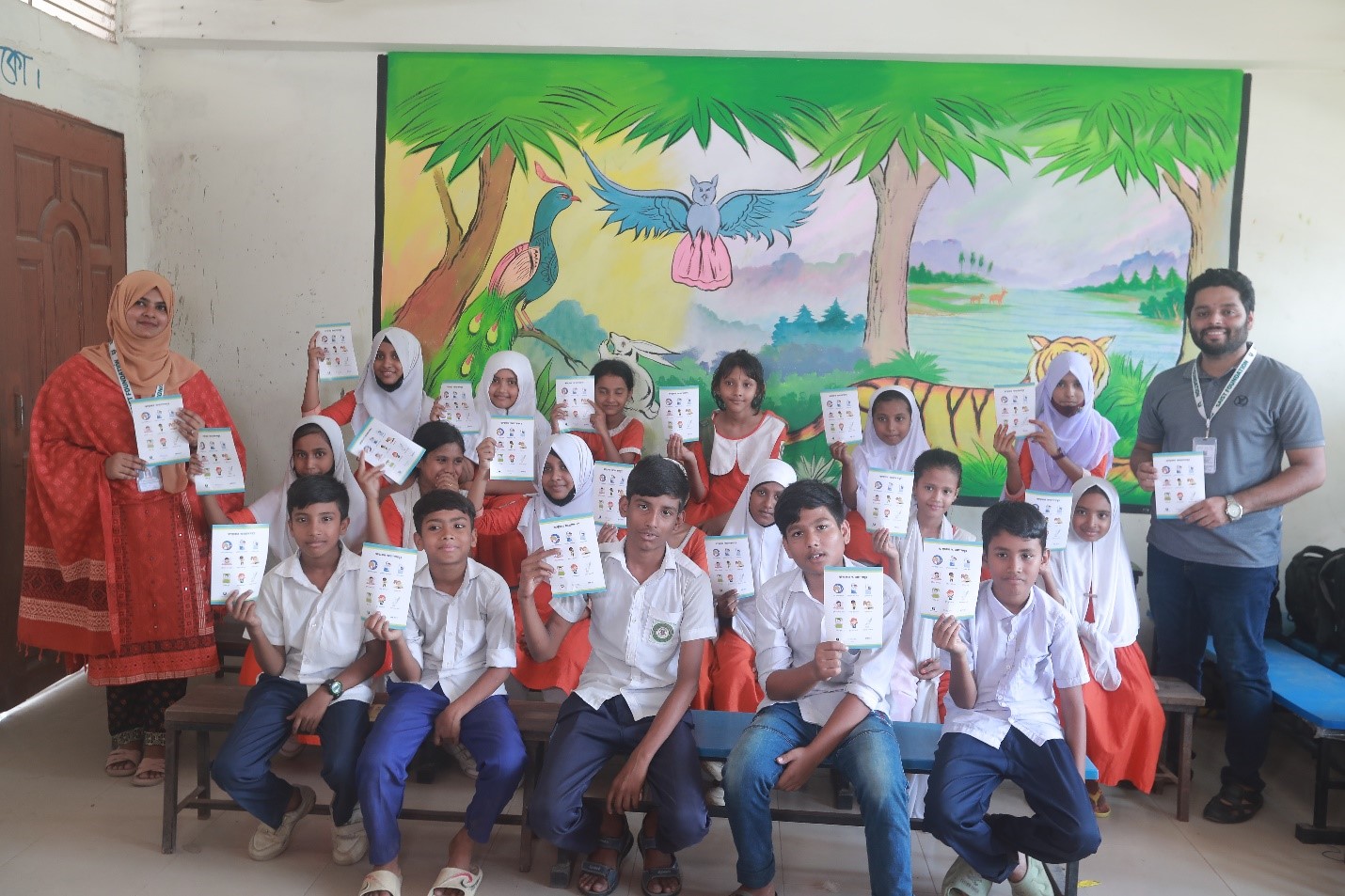Bangladesh, a densely populated South Asian nation, faces significant challenges in ensuring adequate nutrition and basic hygiene for its citizens. High population density, limited resources, and various socioeconomic factors made the situation dire . Malnutrition remains a critical issue in Bangladesh, with around 31% of children under the age of five experiencing stunted growth, and 36% underweight, according to the World Food Programme (WFP) statistics. These conditions can have lifelong impacts on physical and cognitive development. Additionally, many Bangladeshis lack essential micronutrients like iron and vitamin A. For example, the Bangladesh Demographic and Health Survey (BDHS) reported that 21% of women of reproductive age are anemic from these micronutrients. Poor access to nutrient-dense foods, particularly for marginalized communities, is a major risk factor to malnutrition in Bangladesh. Additionally, unsafe food handling and a lack of awareness regarding food safety and hygiene practices are common issues, contributing to illnesses and the spread of diseases, especially among school-going students.
SAIST Foundation, a non-profit research organization dedicated to improving public health in Bangladesh, recognizes the importance of addressing nutrition and basic hygiene issues, particularly among school students as part of the study “Effectiveness and Scalability of Programs for Children Who Are Out of School and At Risk of Dropping Out in Bangladesh”, funded by the Global Partnership for Education’s (GPE) Knowledge and Innovation Exchange (KIX) and the International Development Research Centre (IDRC).
As part of the study, during the baseline survey among selected primary and secondary school students, the majority of students reported not having basic, and nutritious foods regularly. For example, about 70% of students reported not eating fruits daily and about 25% of students on average do not have vegetables daily both in the treatment and control groups. However, some students reported unhealthy eating practices, such as, consuming carbonated drinks at least one time per day (15 to 20% of students). On average 45% of students from all the schools have outside food on a regular basis.
The consumption of non-nutritious and outside foods has been linked to several adverse health outcomes, including an increased risk of absenteeism, and reduced academic performance among school-going students. Eating foods that are high in sugar, fat, and salt but low in nutrients can lead to poor health outcomes such as obesity, diabetes, and heart disease. Studies found that students who regularly consume unhealthy foods have higher rates of absenteeism and lower academic performance compared to students who consume healthy foods.
SAIST conducted nutrition and basic hygiene sessions for about 500 students in the study schools to strengthen students’ knowledge, and alter their unhealthy food choosing behaviors with adopting better hygiene practices. Informative sessions on the importance of a balanced diet, including fruits, vegetables, and proteins were conductedto combat malnutrition. In addition, hands-on workshops to teach proper handwashing techniques and the importance of clean water sources and sanitation were also conducted. At the end of the sessions, students were provided with healthy snacks and hygiene kits.
+8801793593339

